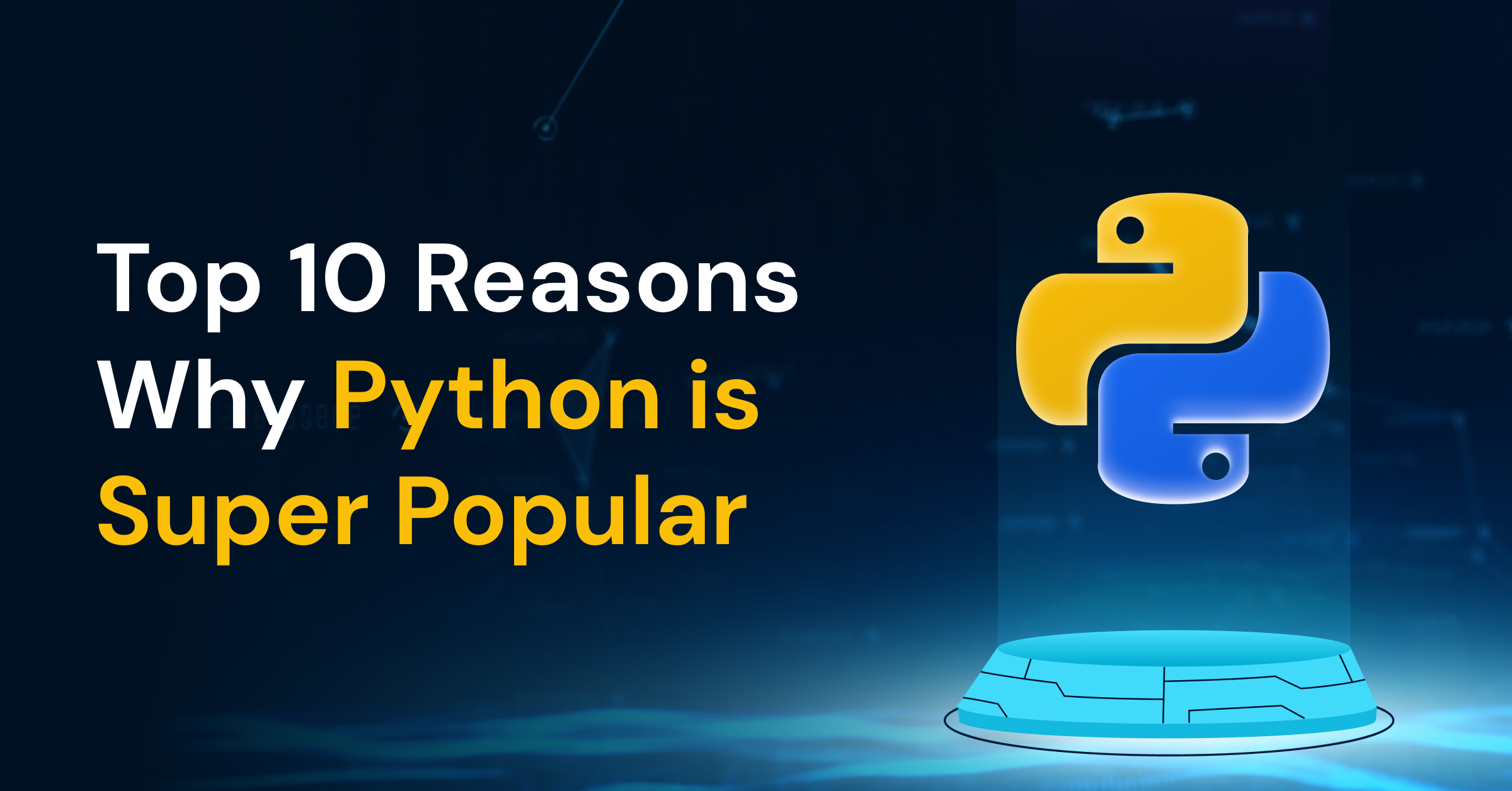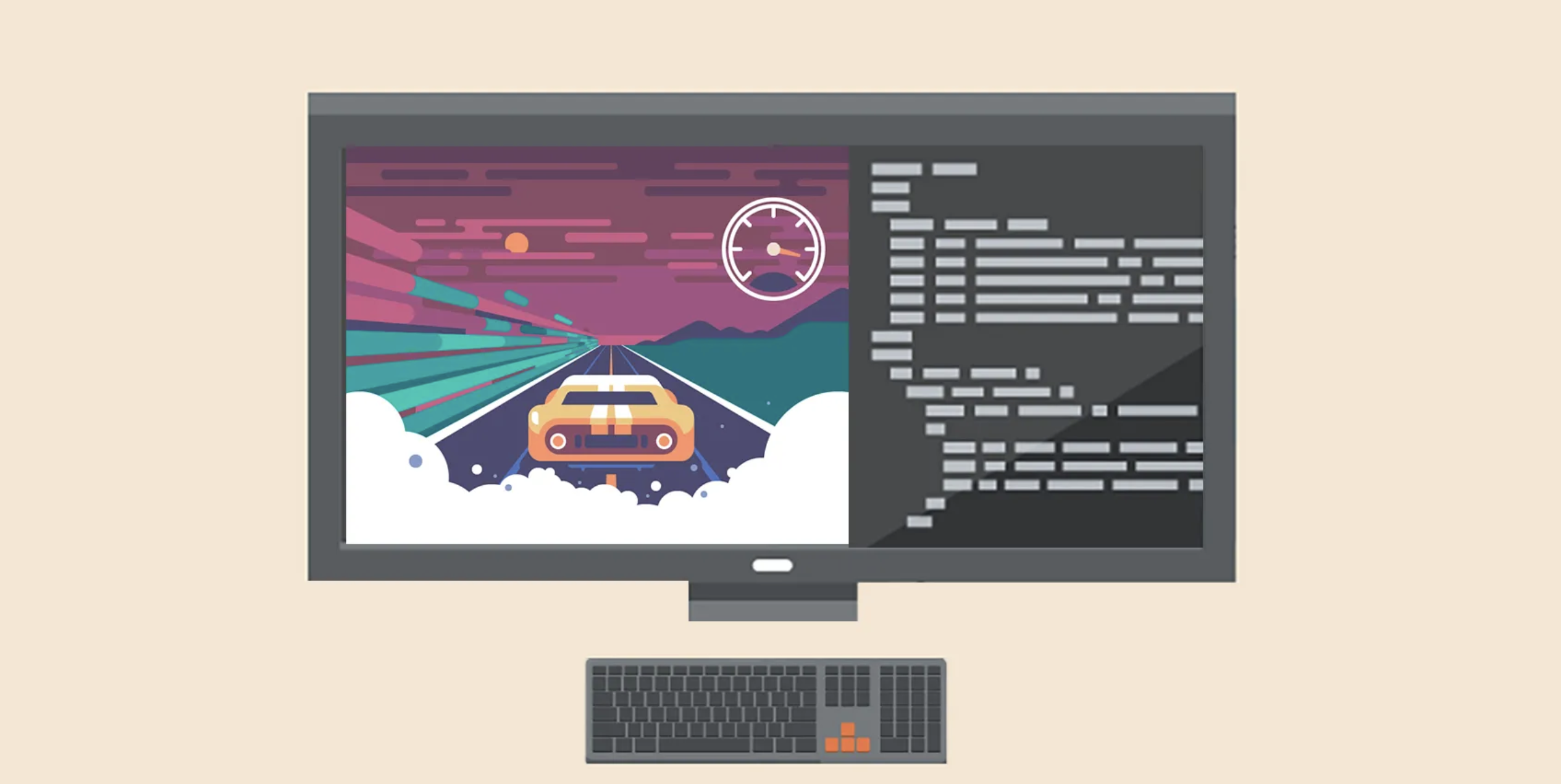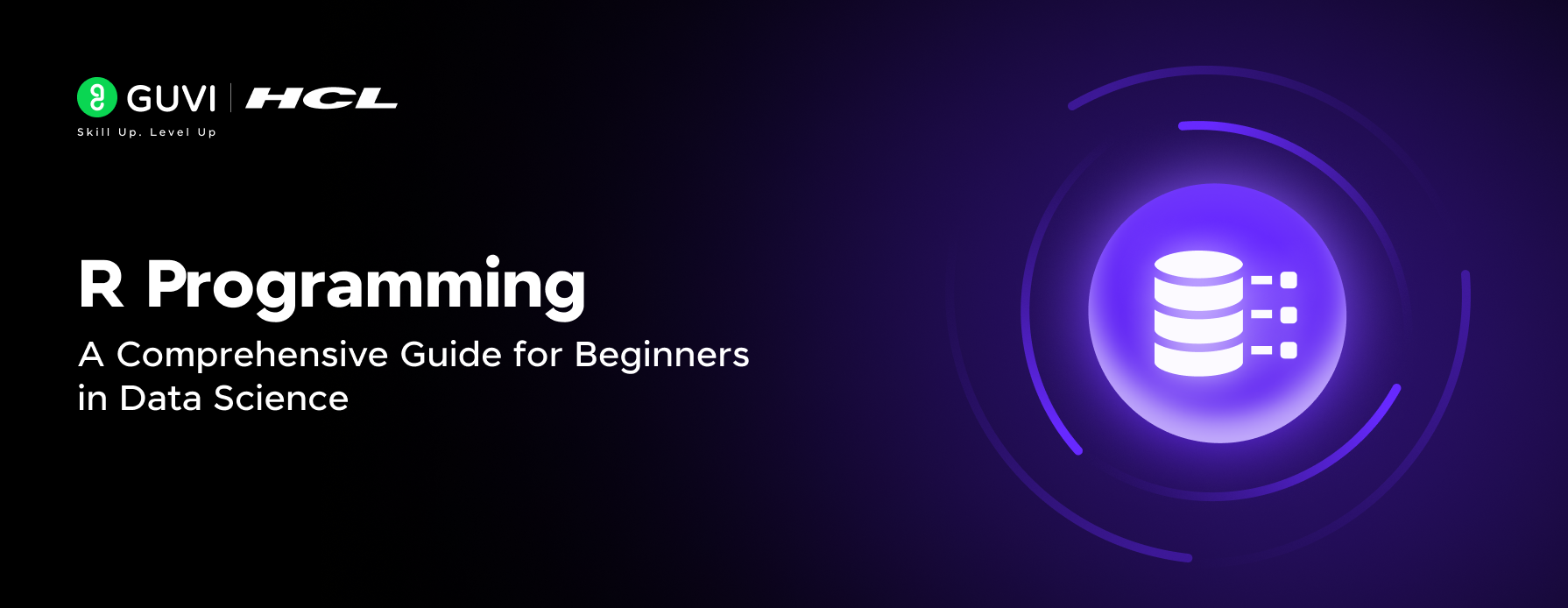
Top 10 Reasons Why Python is Super Popular in 2025
Dec 21, 2024 4 Min Read 7443 Views
(Last Updated)
Did you know that Google adopted Python in 2006? You may or may not know it, but Python is not a new programming language. It isn’t as old as some of the other languages, but it has existed for much longer than most people believe.
Python has recently grown to popularity as one of the most widely used programming languages in the world. It has been used to construct anything from Netflix’s recommendation system to self-driving car software. Have you wondered why it has become so popular?
Python is utilized in a variety of applications, including machine learning, website development, and software testing. It has been used by many non-programmers also, like accountants and warehouse managers, for a wide range of common tasks, such as arranging finances and materials, because of the relative ease with which it can be learned.
Table of contents
- Top 10 Reasons Why Python is Super Popular
- Simple Syntax & Ease of Use
- Large & Active Community
- Modules & libraries
- Automation of Tasks
- Python with IoT
- Best Option for Startups
- Expanding Career Opportunities
- Multi-Purpose Programming Language
- Corporate Sponsorship Support
- 10. Python in Academia
- Conclusion
- FAQ’s
- Why is Python the best programming language for AI?
- Which companies make use of Python?
- Which coding language should I learn in 2025?
- Which jobs demand Python?
- What is the main use of Python?
Top 10 Reasons Why Python is Super Popular
Here are the top 10 reasons behind Python’s recent surge in popularity in 2025:
1. Simple Syntax & Ease of Use
A successful app necessitates a powerful programming language that is straightforward to read, enhance, and maintain. Python combines all of these features.
It is simple to learn and use, making it an excellent choice for newbies. It is one of the most user-friendly programming languages because of its simple syntax and emphasis on natural language.
Python codes are simple to write and execute quickly. One of the main reasons for Python’s appeal is because it is simple enough for even novice programmers to understand.
Before diving into the next section, ensure you’re solid on Python essentials from basics to advanced-level. If you are looking for a detailed Python career program, you can join GUVI’s Python Career Program with placement assistance. You will be able to master the Multiple Exceptions, classes, OOPS concepts, dictionary, and many more, and build real-life projects.
Also, if you would like to explore Python through a Self-paced course, try GUVI’s Python Self-Paced course.
2. Large & Active Community
Python has one of the largest and most supportive development communities in the world, because of its popularity.
There have been nearly 2 million Python-related inquiries on Stack Overflow alone. A total of 1.3 million inquiries have been answered so far.
It has a vibrant community that contributes to the library of modules and libraries and serves as a resource for other programmers.
The community is extremely crucial when it comes to the popularity of any programming language.
A programming language will not acquire traction if it lacks developer support.
3. Modules & libraries
Python has a large number of libraries and frameworks that save time and effort in the early stages of development, which is one of the main reasons why it is one of the most popular programming languages.
Python provides cloud media services and has cross-platform compatibility with library-like tools; when used together, they are tremendously advantageous.
The Python module and library archive are large and growing. It has excellent modules and frameworks for problem-solving.
4. Automation of Tasks
You can automate practically any monotonous task with Python and its large number of libraries and modules. This frees up resources to be employed on more important causes.
It also helps a lot with the automation of tasks because it has a variety of libraries and modules, which makes things easier.
Incredibly, advanced degrees of automation may be achieved with the most basic python codes.
Python is also the most efficient language for automating software testing. No wonder Python has become a de facto automation industry standard!
5. Python with IoT
The Internet of Things (IoT) is a term that refers to small, low-power devices that are connected to the internet.
Python is highly involved in the IoT sector, which is not surprising given its adaptability and flexibility. Raspberry Pi, Intel Edison, and Arduino are all popular IoT devices.
Python and its IoT libraries can control all of these devices. An example is MicroPython, a slimmed-down version of the Python 3 programming language used in conjunction with IoT devices.
6. Best Option for Startups
If you want to start a product development process, you’ll need to think about a lot of things before deciding on a programming language.
When picking a programming language, you should consider several criteria such as development speed, language popularity, libraries, security, scalability, and stability.
So, what part does Python play in this? Python is a high-level, dynamic, object-oriented programming language that may be used on any project. Python promotes quick development by allowing programmers to perform quick computations.
It comes with pre-built libraries that speed up the development process. Python will allow you to quickly create a working version of a complex product in 2025.
7. Expanding Career Opportunities
Python technology jobs are on the rise, as are Python employment options. Job roles for a qualified Python developer include Python developer, Data Analyst, Product Manager, and Machine Learning Engineer, all of which are expected to rise in the future.
Many IT giants use Python for app development, whether it’s for application development, web development, or system management, and it’s used by everyone from start-ups to large corporations like NASA.
Without any doubt, it is one of the fastest-growing languages, with plenty of opportunities for developers in 2025!
8. Multi-Purpose Programming Language
Python is a multipurpose programming language that all employers desire which is also one of the top reasons Python is so popular because of this reason!
Unlike certain programming languages, such as R, which is useful for data science and machine learning but not for web development, Python has a wide range of capabilities.
For example, you can use NumPy, SciPy, Scikit-Learn, and other libraries to construct web apps using the Python programming language.
9. Corporate Sponsorship Support
A programming language grows at a faster pace when a company sponsors it.
Python has several well-known sponsors, including Facebook, Bloomberg, Red Hat, Microsoft, and others. The Python programming language is also supported by Amazon and Google.
The Python language’s list of sponsors and supporters continues to increase among the development community.
.This, in turn, leads to a fast-growing collection of support resources and documentation, as well as free language advertising.
10. Python in Academia
Python is quickly becoming a part of academics, and not simply for major web development and other activities.
In the years after that, the Python language was taught in schools and colleges as a programming language.
This is due to the plethora of career opportunities in Artificial Intelligence, Deep Learning, and Data Science that are growing.
As a result, Python programmers and developers are becoming increasingly in demand.
Kickstart your Programming journey by enrolling in GUVI’s Python Career Program where you will master technologies like multiple exceptions, classes, OOPS concepts, dictionaries, and many more, and build real-life projects.
Alternatively, if you would like to explore Python through a Self-Paced course, try GUVI’s Python Self Paced course.
Conclusion
Python is evolving at a breakneck pace; it’s a powerful programming language with simple code lines and a slew of other impressive features. Because of its ease of use and incomparable versatility, the language is being accepted as a career choice by aspiring developers all around the world.
Python is important to learn because it is progressively becoming the top choice for developers who are just getting started with machine learning, thanks to its capabilities and simplicity of recruiting Python developers.
We hope that this article has thrown some light on the Python programming language and its exploding popularity in 2025.
Which of these factors contributing to Python’s success piqued your interest the most? Do you believe Python’s popularity will grow in the next few years? Please share your views in the comment section below.
FAQ’s
1. Why is Python the best programming language for AI?
Python has a large library, is object-oriented, and is simple to program. It can also be used as a frontend programming language. It’s for this reason that it’s employed in artificial intelligence. It is also utilized in machine learning, soft computing, NLP programming, web scripting, and ethical hacking, in addition to AI.
2. Which companies make use of Python?
Intel, IBM, NASA, Pixar, Netflix, Facebook, JP Morgan Chase, Spotify, and a slew of other major corporations employ Python. It is one of the four languages of the Google system and is widely used on YouTube. The same can be said for Reddit, Pinterest, and Instagram.
3. Which coding language should I learn in 2025?
Python. It is often regarded as the best programming language of the future. It is the primary coding language used by about 80% of developers according to the most recent figures. Python’s extensive libraries make artificial intelligence, data science, and machine learning techniques way easier.
4. Which jobs demand Python?
Data analyst, Backend developer, Quality assurance engineer, Operations automation engineer, Python developer, Full stack developer, Data engineer, Data scientist, Machine learning engineer, and so on are some of the job titles that employ Python.
5. What is the main use of Python?
Python is predominantly used for web and software development, data analysis, and data visualization as well as for automation of tasks. Python is frequently used by software engineers as a support language for build control and administration, testing, and a variety of other tasks. Machine learning, artificial intelligence, and image processing are all areas where they can be used.































Did you enjoy this article?